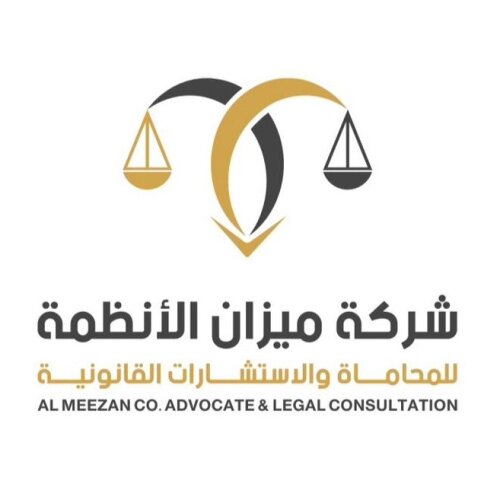Best International Trade Law Lawyers in Makkah
Share your needs with us, get contacted by law firms.
Free. Takes 2 min.
List of the best lawyers in Makkah, Saudi Arabia
About International Trade Law in Makkah, Saudi Arabia
International Trade Law in Makkah, like the rest of Saudi Arabia, is governed by a complex interplay of international agreements, national laws, and regional regulations. Saudi Arabia is a member of the World Trade Organization (WTO), which means it adheres to various international trade agreements and standards. In Makkah, a city with significant religious and cultural importance, the application of International Trade Law is also influenced by local customs and religious practices. Key legislations impacting trade include import and export regulations, customs duties, and compliance with Islamic law or Sharia, which plays an integral role in the legal system.
Why You May Need a Lawyer
Individuals and businesses may require legal assistance in International Trade Law for various reasons, including:
- Navigating complex import and export procedures and regulations.
- Understanding and adhering to local and international compliance standards.
- Resolving trade disputes, which can involve multiple jurisdictions and legal systems.
- Drafting and reviewing international contracts and agreements to ensure legal compliance and protect interests.
- Adapting to changes in trade regulations or international sanctions.
- Handling issues related to customs duties and tariffs.
Local Laws Overview
In Makkah and throughout Saudi Arabia, several key aspects of local laws are particularly relevant to International Trade Law:
- Sharia Law: This forms the foundational legal framework and affects all legal matters, including trade and commerce.
- Commercial Law: The Saudi Companies Law outlines the formation, governance, and operation of business entities engaged in trade.
- Customs Law: This dictates the procedures for importing and exporting goods, including tariffs and duties.
- Investment Regulations: Rules governing foreign investment in Saudi Arabia, aimed at promoting foreign participation in its economy while safeguarding national interests.
- Trade Policy: Saudi Arabia’s commitments under the WTO, which affect trade operations and dispute resolution.
Frequently Asked Questions
What is the role of Sharia law in international trade practices in Makkah?
Sharia law plays a critical role in legal proceedings in Saudi Arabia. All commercial activities, including international trade, must be compliant with Islamic legal principles, which can impact contract terms and business operations.
How are trade disputes resolved in Saudi Arabia?
Trade disputes are typically resolved through arbitration or the legal system, sometimes employing international arbitration standards depending on the nature of the agreement and involved parties.
What are the main requirements for establishing a trade business in Makkah?
Establishing a trade business requires adherence to local business laws, obtaining necessary licenses, compliance with Saudi investment regulations, and, often, the involvement of a local partner or sponsor for foreign entities.
How can I ensure compliance with Saudi customs regulations?
Engaging a lawyer well-versed in local customs laws and regularly consulting the Saudi Customs Authority can help ensure compliance and smooth import/export operations.
What are the implications of WTO membership on doing business in Saudi Arabia?
As a WTO member, Saudi Arabia is subject to international trade agreements, impacting market access, tariffs, and trade dispute resolution mechanisms, providing more predictable trade conditions.
Are there restrictions on the import of certain goods into Saudi Arabia?
Yes, there are restrictions regarding prohibited or restricted items, typically for religious, health, safety, or environmental reasons. Consulting legal professionals can clarify specific restrictions applicable to your trade.
What are the penalties for non-compliance with trade laws in Saudi Arabia?
Penalties can include fines, revocation of business licenses, confiscation of goods, and, in severe cases, criminal charges. It is crucial to comply with all applicable regulations to avoid these consequences.
How can changes in international trade laws affect my business in Saudi Arabia?
International changes, such as new trade agreements or sanctions, can impact tariffs, market access, and supply chain logistics, necessitating businesses to adapt promptly to new regulations.
What is the process for obtaining a trading license in Makkah?
The process involves registering with the Ministry of Commerce, obtaining municipal approvals, and possibly partnering with a Saudi national, especially for foreign investors.
Does Saudi Arabia have any free trade zones, and could they benefit my business?
Saudi Arabia has economic cities and zones with tax incentives and relaxed regulations to attract investment and could offer significant benefits if aligned with your business strategy.
Additional Resources
For further assistance, consider consulting the following resources:
- Saudi Ministry of Commerce: Provides guidelines, regulations, and services for businesses.
- Saudi Customs Authority: Offers detailed information on customs duties and procedures.
- World Trade Organization (WTO): For understanding international commitments and trade regulations affecting Saudi Arabia.
- Chambers of Commerce in Saudi Arabia: Facilitates networking and support for businesses engaged in trade.
Next Steps
If you need legal assistance in International Trade Law in Makkah, consider the following steps:
- Identify the specific legal needs or challenges your business is facing.
- Research and choose a law firm or legal professional specializing in International Trade Law, with a focus on Saudi Arabian regulations.
- Prepare necessary documentation and information related to your case or business operations.
- Schedule a consultation to discuss your situation, explore legal strategies, and understand potential outcomes.
- Follow the legal guidance provided and maintain open communication with your legal advisor to ensure compliant and efficient trade operations.
Lawzana helps you find the best lawyers and law firms in Makkah through a curated and pre-screened list of qualified legal professionals. Our platform offers rankings and detailed profiles of attorneys and law firms, allowing you to compare based on practice areas, including International Trade Law, experience, and client feedback.
Each profile includes a description of the firm's areas of practice, client reviews, team members and partners, year of establishment, spoken languages, office locations, contact information, social media presence, and any published articles or resources. Most firms on our platform speak English and are experienced in both local and international legal matters.
Get a quote from top-rated law firms in Makkah, Saudi Arabia — quickly, securely, and without unnecessary hassle.
Disclaimer:
The information provided on this page is for general informational purposes only and does not constitute legal advice. While we strive to ensure the accuracy and relevance of the content, legal information may change over time, and interpretations of the law can vary. You should always consult with a qualified legal professional for advice specific to your situation.
We disclaim all liability for actions taken or not taken based on the content of this page. If you believe any information is incorrect or outdated, please contact us, and we will review and update it where appropriate.














